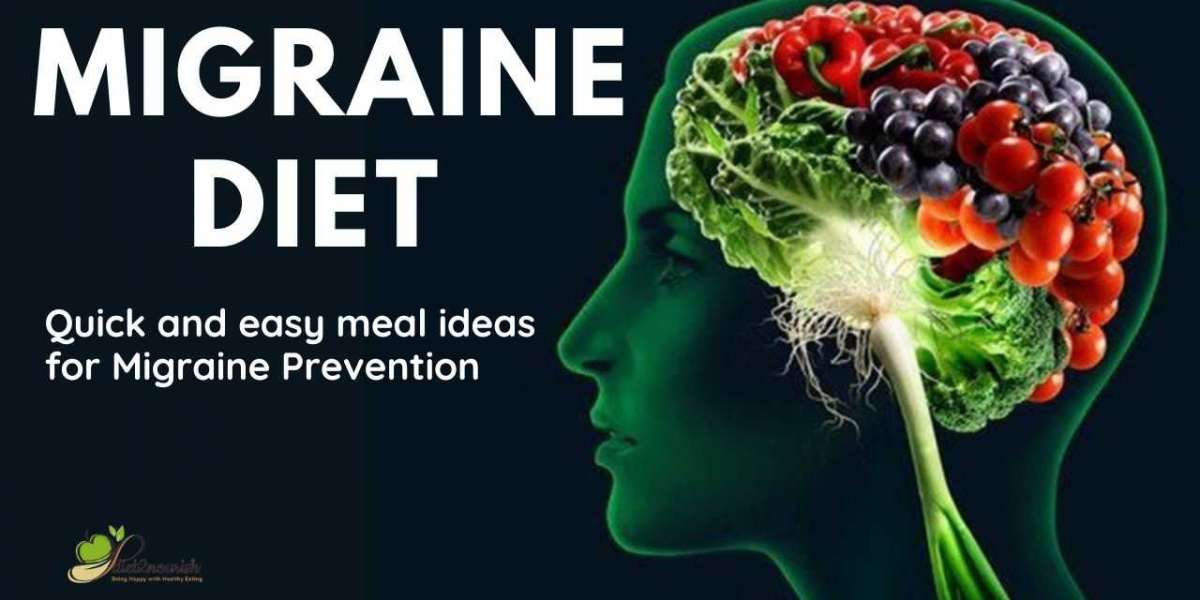A migraine diet is a type of diet that is designed to reduce the frequency and severity of migraines, a condition characterized by recurrent headaches that can be accompanied by symptoms such as nausea, sensitivity to light and sound, and visual disturbances. Here is a sample migraine diet chart:
Breakfast:
- Greek yogurt with fresh berries and granola
- Oatmeal with sliced banana and almond butter
- Spinach and mushroom omelet with whole wheat toast
Snack:
- Raw vegetables such as carrot sticks, celery, and cucumber with hummus or guacamole
- A handful of almonds or other nuts
- Apple slices with almond butter
Lunch:
- Grilled chicken salad with mixed greens, avocado, and quinoa
- Whole wheat pita with hummus, vegetables, and grilled chicken
- Lentil soup with whole grain crackers
Snack:
- Low-fat cheese with whole grain crackers
- Smoothie made with almond milk, spinach, and mixed berries
- Hard boiled egg
Dinner:
- Grilled salmon with roasted vegetables such as broccoli and sweet potato
- Brown rice bowl with mixed vegetables and grilled tofu
- Turkey burger with mixed greens and sweet potato fries
Dessert:
- Fresh fruit such as sliced pineapple or melon
- Dark chocolate with almonds
- Homemade fruit sorbet
A migraine diet should be rich in nutrient-dense foods such as fruits, vegetables, whole grains, lean proteins, and healthy fats, and should avoid trigger foods that can contribute to migraines. Trigger foods vary from person to person, but some common trigger foods include:
- Processed meats such as deli meat and hot dogs
- Aged cheeses such as cheddar and blue cheese
- Alcohol, especially red wine
- Caffeine
- Chocolate
- MSG, a flavor enhancer found in many processed foods
- Artificial sweeteners such as aspartame
Some migraine sufferers may also benefit from incorporating supplements such as magnesium and riboflavin into their diet, as these nutrients have been shown to reduce the frequency and severity of migraines. As always, it is important to consult with a healthcare professional before making significant changes to one’s diet or supplement regimen, especially if one has pre-existing health conditions.



